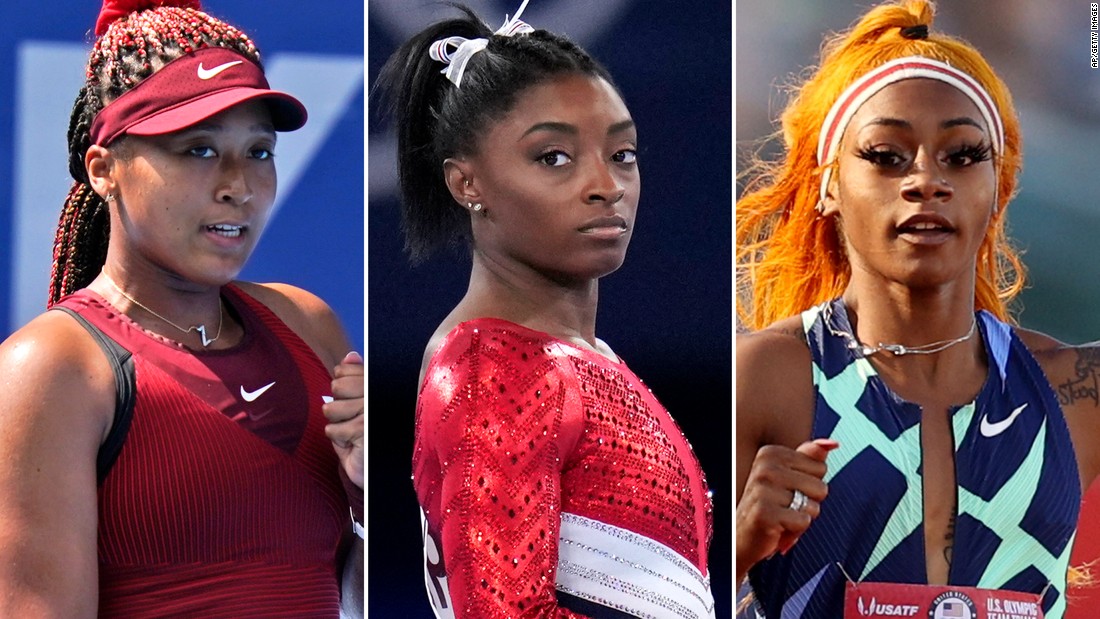A meme of Naomi Osaka, Simone Biles and Sha’Carri Richardson this week showed that these three Black women share something
They are women of color (Osaka has a Japanese mother and a Haitian father while Biles and Richardson are African American) and have made headlines recently due to decisions they made to support their mental health.
All three also have something in common which I very much understand — the struggle women of color face in exercising self-care.
As I wrote in the caption of the meme I shared on Instagram, it’s hard being a Black woman.
“We are supposed to save relationships, families, elections, communities, democracy and basically the world all while exhibiting “black girl magic,” but y’all mad when we save ourselves?” I wrote. “Welcome to a new day.”
The heavy load is made worse by the fact that as Black women, we are not socialized to give as much care to ourselves as we are expected to give to others.
Black women are literally expected to be super women, from heading households to serving as emotional support for White people who want to be allies, but need our help figuring out how to get there.
There is an added layer for Black women athletes who have to compete against more than just their opponents.
A 2018 study titled “Beating Opponents, Battling Belittlement: How African-American Female Athletes Use Community to Navigate Negative Images” from Morgan State University in Baltimore examined how they must navigate both racism and sexism in order to become champions.
For example, it noted that Serena Williams — arguably the world’s greatest tennis player with more than 20 Grand Slam wins — has been compared to a “man” and a “gorilla.”
Radio host Don Imus called the players on the 2007 Rutgers women’s basketball team “nappy-headed hos” after they lost to the Tennessee team in the NCAA final.
Osaka, Biles and Richardson have been the targets of racism and sexism before, but even more so recently.
Both Osaka and Biles dropped out of competitions, they said, to protect their mental health and Richardson was disqualified from competing after testing positive for cannabis.
Richardson smoked marijuana legally in Oregon and explained that it happened after a journalist whom she didn’t know broke the news to her about the death of her mother.
The three have been criticized as “quitters,” “arrogant,” “lazy” and “irresponsible” by some on social media. And those are just the words fit to print here.
All are sending a clear message: They are taking care of themselves.
This trio of athletes is younger than I am and I truly do believe that they are of a generation that has decided to prioritize their mental health over everything else — haters be damned.
Each of them has already put in the work ethic that has gotten them to the top of their fields and they owe none of us their talents at the risk of themselves. They wouldn’t, even if they weren’t champions.
A friend reached out privately to express anger that these women couldn’t see fit to “push through” and “do the work” as we had been raised to (this friend and I are of the same generation).
To that, I say perhaps they have looked at the older generations and seen that such a mentality can yield physical, emotional and mental ramifications that just aren’t worth it. What good is fame, fortune and medals if unhappiness is the toll to pay to get there?
So call it dropping out, quitting or even breaking the rules if you want. What I call it is winning.
![]()


